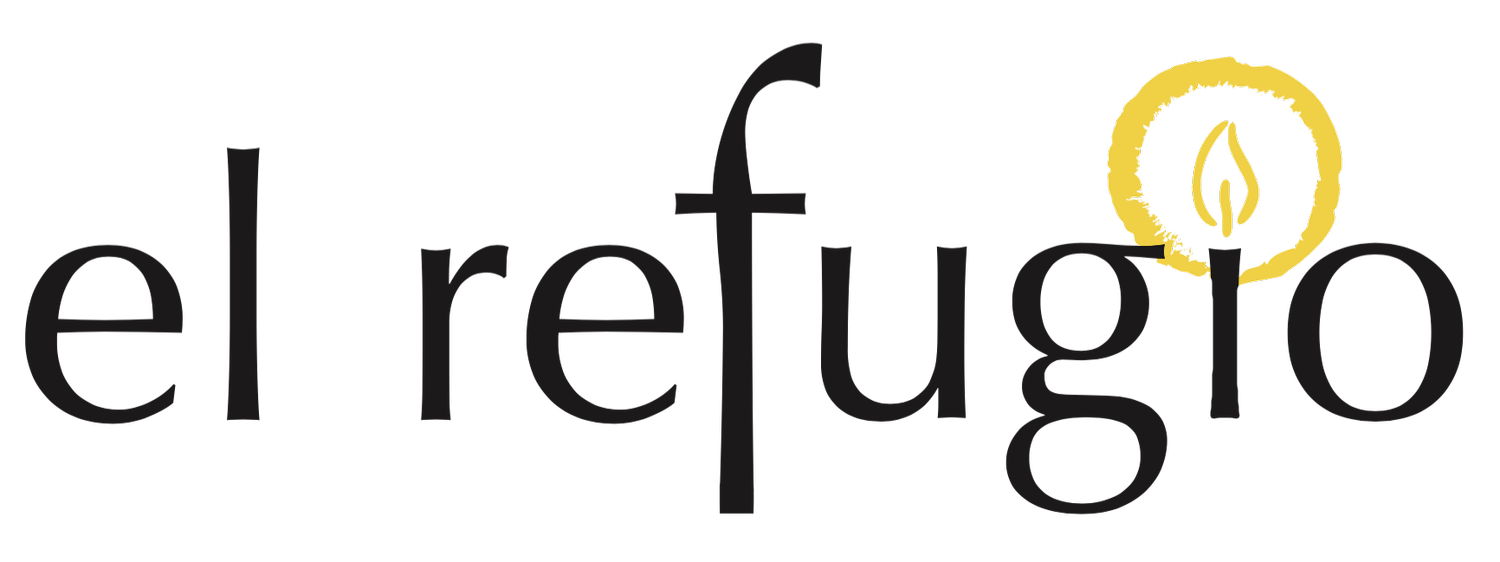Our beginnings
El Refugio was established in 2010 by Alterna (now Casa Alterna), a community of recently arrived asylum seekers and U.S. citizens. Inspired by houses providing “radical hospitality,” Alterna’s director, Anton Flores-Maisonet, gathered a team around a vision of providing “a compassionate place of refuge for families torn apart by our dehumanizing immigration policies."
Along with other individuals and organizations, Alterna and Georgia Detention Watch (GDW), led protests against Stewart Detention Center (SDC) in Lumpkin, documented abuses there, and brought groups to visit people detained at the facility. These visits led to conversations with the loved ones of people detained, many of whom had traveled several hours and had no place to rest or sleep before their long journey back home. The traumatic experiences of these families made clear the need for free, safe, and welcoming overnight lodging in Lumpkin. In response, Alterna rented a small house just down the road from SDC and named the hospitality house El Refugio.
In addition to Anton and his wife Charlotte Flores, the charter volunteer coordinators of El Refugio were Bryan and Christin Babcock, Amy and PJ Edwards, Cherilyn and Pete Larsen, Marilyn McGinnis, Lesley Ediger Ramchandani, and Amilcar and Katie Valencia. Many of these founding members are still involved in our work.
El Refugio is born
The newly formed group began staffing the house every weekend, offering a safe space and warm welcome to visiting families and friends, affirming the dignity of those directly impacted by the expensive, inhumane, and unnecessary detention system. The volunteers also visited people at SDC whose families and friends could not make the trip to Lumpkin. Gradually, groups from churches, schools, and civic organizations heard about El Refugio and joined weekend volunteers to do visits, hear first-hand stories from impacted families, and witness the injustice of immigration detention.
Seeing the enormous growth of El Refugio’s visitation and hospitality programs, Alterna engaged in a process to discern the best way to ensure the organization would be able to grow in its mission. Alterna made the decision to let El Refugio follow its own path going forward, and in 2012, El Refugio became an independent nonprofit organization under the direction of a committed volunteer board. Marie Marquardt and Katie Beno-Valencia co-chaired El Refugio’s board from 2012-2015, and Marie Marquardt continued as chair until 2018.
Over the next few years, as El Refugio's capacity grew, new ways to support people detained and their families emerged. Volunteers began writing letters and sending books to people at SDC, and others answered hundreds of helpline calls from individuals and family members seeking support. El Refugio volunteers began sending backpacks of clothing to people facing deportation in partnership with our friends at Koinonia Farm in nearby Americus, who eventually took over the task of fulfilling the clothing requests.
As we grew, El Refugio also committed itself to “education for advocacy.” Board members lead dozens of immigration education and dialogue sessions each year, providing reliable, fact-based information and facilitating conversations about detention among people of various backgrounds and beliefs. By expanding knowledge and building relationships, El Refugio draws more and more people into the work of advocacy and service, in partnership with immigrants and asylum seekers.
Continuing to grow
In 2015, El Refugio hired Amilcar Valencia as its first executive director. Meanwhile, the work of hospitality was outgrowing our tiny rental house, so El Refugio launched our Hope for Hospitality capital campaign to raise money for a larger house. In 2018, El Refugio received the unexpected gift of a beautiful historic house with four large bedrooms for guests, a welcoming kitchen, a spacious dining room, several bathrooms, laundry facilities, and bunk rooms upstairs for volunteers. With the wonderful new house, El Refugio is able to offer a more comfortable environment for guests and volunteers. Along with our expanded capacity for hospitality, we have increased our ability to respond to the needs of our community in the last few years by adding new positions to the staff. These positions include a coordinator to oversee a new post-release program, which helps people released from SDC – often at night and with little notice – to get to friends or family around the county.
In 2020, when COVID-19 struck, El Refugio entered our next phase of service. Detention centers nationwide shut down visitation, and although El Refugio temporarily closed its hospitality house, bilingual volunteers continued to answer helpline calls. Callers were terrified of contracting COVID-19, given their inability to socially distance and protect themselves. El Refugio put money on their phone and commissary accounts and advocated for their release. In partnership with Paz Amigos, Casa Alterna, and others, El Refugio’s post-release staff and volunteers helped people being released get home safely. El Refugio also addressed urgent needs among families, including by providing hand-made masks, grocery store gift cards, and money for utility bills.
Mission unchanged
Most recently, El Refugio has made significant progress in our advocacy work. Our unique, first-hand knowledge of the suffering immigration detention causes individuals and families makes us a valuable partner to other organizations fighting for the release of all immigrants detained by ICE
Today, El Refugio has four full-time employees, an active board, and a large team of volunteers focused on supporting people at SDC and their loved ones, while advocating to shut down Stewart Detention Center. As we grow, the values of radical hospitality and solidarity continue to shape our vision and mission, and the relationships we build as we accompany those most affected by immigration detention continue to lie at the heart of our work.



